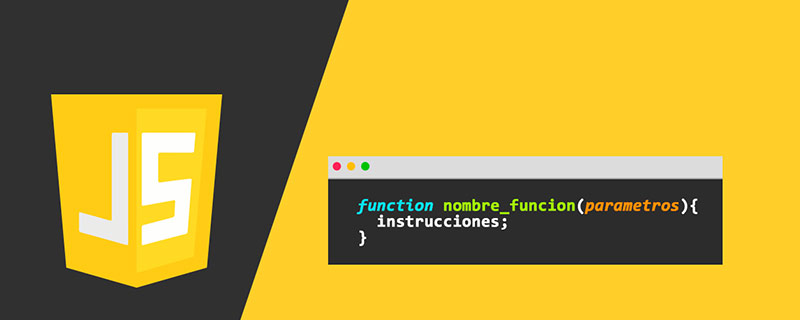However, there is news that Microsoft has contacted Node.js officials, and I believe there will be improvements soon.
So without installing Cygwin, is it possible to set up a Node.js environment on Windows for experimental development? I did a simple test using Node.js + express, and it is basically feasible.
The steps are as follows:
1. Download the official non-stable version of Node.js Windows executable program:
http://nodejs.org/#download
I used version 0.5.7 in the experiment: http://nodejs. org/dist/v0.5.7/node.exe
2. Create the c:nodejs directory and save node.exe in this directory
3. Download express. Because of dependencies, we also need to download: connect, qs, mime and jade (express default template system. If you use other template systems, you need to download the corresponding system)
Name Address Experimental Version
---------- -------------------------------------------------- ---
express: https://github.com/visionmedia/express 2.4.3
connect: https://github.com/senchalabs/connect 1.7.1
qs: https://github.com/visionmedia/ node-querystring 0.3.1
mime: https://github.com/bentomas/node-mime 1.2.4
jade: https://github.com/visionmedia/jade 0.15.4
4. Create c:nodejsnode_modules directory, and create [Module] directories respectively in this directory. Then compress the file downloaded in the previous step and copy the relevant files to the [Module] directory.
node_modules
|- connect |- express |- jade |- mime |- qs
5. In the c:nodejsnode_modules directory, create the following files:
connect.js
Content: module.exports = require('./connect/connect ');
express.js
Content: module.exports = require('./express/express');
jade.js
Content: module.exports = require('./jade/jade');
mime. js
Content: module.exports = require('./mime/mime');
qs.js
Content: module.exports = require('./qs/querystring');
6. Compress the downloaded express Copy the bin/express file in the package to the c:nodejs directory and rename it to express.js
7. Modify the express.js file, taking 2.4.3 as an example below:
7.1. Modify the mkdir function body
401: exec( 'mkdir -p ' + path, function(err){
->exec('md ' + path, function(err){
7.2. Modify mkdir function call
263: mkdir(path + '/public/javascripts' );
->mkdir(path + '\public\javascripts');
264: mkdir(path + '/public/images');
->mkdir(path + '\public\images');
265: mkdir(path + '/public/stylesheets', function(){
->mkdir(path + '\public\stylesheets', function(){
280: mkdir(path + '/views', function( ){
->mkdir(path + '\views', function(){
8. Create an express project:
c:nodejsnode.exe express.js -s hello
9. c:nodejsnode_modules*.* => c:nodejshellonode_modules
10. Run and test:
c:nodejsnode.exe helloapp.js
Open in the browser: http://localhost:3000 to view the results.
The test is now complete.
The test file is given below. In the test file, I also tested express session. You can open it in the browser: http://localhost:3000/session to view the results.
For more related articles on how to install Node.js modules on Windows, please pay attention to the PHP Chinese website!
 Vercel是什么?怎么部署Node服务?May 07, 2022 pm 09:34 PM
Vercel是什么?怎么部署Node服务?May 07, 2022 pm 09:34 PMVercel是什么?本篇文章带大家了解一下Vercel,并介绍一下在Vercel中部署 Node 服务的方法,希望对大家有所帮助!
 node.js gm是什么Jul 12, 2022 pm 06:28 PM
node.js gm是什么Jul 12, 2022 pm 06:28 PMgm是基于node.js的图片处理插件,它封装了图片处理工具GraphicsMagick(GM)和ImageMagick(IM),可使用spawn的方式调用。gm插件不是node默认安装的,需执行“npm install gm -S”进行安装才可使用。
 一文解析package.json和package-lock.jsonSep 01, 2022 pm 08:02 PM
一文解析package.json和package-lock.jsonSep 01, 2022 pm 08:02 PM本篇文章带大家详解package.json和package-lock.json文件,希望对大家有所帮助!
 怎么使用pkg将Node.js项目打包为可执行文件?Jul 26, 2022 pm 07:33 PM
怎么使用pkg将Node.js项目打包为可执行文件?Jul 26, 2022 pm 07:33 PM如何用pkg打包nodejs可执行文件?下面本篇文章给大家介绍一下使用pkg将Node.js项目打包为可执行文件的方法,希望对大家有所帮助!
 分享一个Nodejs web框架:FastifyAug 04, 2022 pm 09:23 PM
分享一个Nodejs web框架:FastifyAug 04, 2022 pm 09:23 PM本篇文章给大家分享一个Nodejs web框架:Fastify,简单介绍一下Fastify支持的特性、Fastify支持的插件以及Fastify的使用方法,希望对大家有所帮助!
 node爬取数据实例:聊聊怎么抓取小说章节May 02, 2022 am 10:00 AM
node爬取数据实例:聊聊怎么抓取小说章节May 02, 2022 am 10:00 AMnode怎么爬取数据?下面本篇文章给大家分享一个node爬虫实例,聊聊利用node抓取小说章节的方法,希望对大家有所帮助!
 手把手带你使用Node.js和adb开发一个手机备份小工具Apr 14, 2022 pm 09:06 PM
手把手带你使用Node.js和adb开发一个手机备份小工具Apr 14, 2022 pm 09:06 PM本篇文章给大家分享一个Node实战,介绍一下使用Node.js和adb怎么开发一个手机备份小工具,希望对大家有所帮助!
 图文详解node.js如何构建web服务器Aug 08, 2022 am 10:27 AM
图文详解node.js如何构建web服务器Aug 08, 2022 am 10:27 AM先介绍node.js的安装,再介绍使用node.js构建一个简单的web服务器,最后通过一个简单的示例,演示网页与服务器之间的数据交互的实现。


Hot AI Tools

Undresser.AI Undress
AI-powered app for creating realistic nude photos

AI Clothes Remover
Online AI tool for removing clothes from photos.

Undress AI Tool
Undress images for free

Clothoff.io
AI clothes remover

AI Hentai Generator
Generate AI Hentai for free.

Hot Article

Hot Tools

SAP NetWeaver Server Adapter for Eclipse
Integrate Eclipse with SAP NetWeaver application server.

PhpStorm Mac version
The latest (2018.2.1) professional PHP integrated development tool

DVWA
Damn Vulnerable Web App (DVWA) is a PHP/MySQL web application that is very vulnerable. Its main goals are to be an aid for security professionals to test their skills and tools in a legal environment, to help web developers better understand the process of securing web applications, and to help teachers/students teach/learn in a classroom environment Web application security. The goal of DVWA is to practice some of the most common web vulnerabilities through a simple and straightforward interface, with varying degrees of difficulty. Please note that this software

SublimeText3 English version
Recommended: Win version, supports code prompts!

ZendStudio 13.5.1 Mac
Powerful PHP integrated development environment






